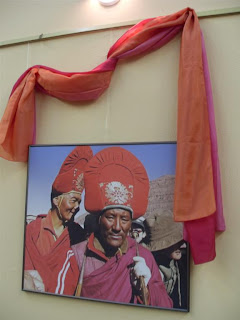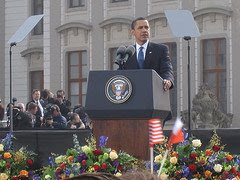During my week in Sweden, I could tell one aspect of Swedish culture that had wide appreciation among Swedes and foreigners alike was the Swedish monarchy. Recently, there was a royal wedding between the beautiful Princess Victoria and her physical fitness trainer Daniel Westling. Reportedly, their relationship was quite a love story warming the hearts of all lovers of fairy tales.
The Swedish Royal Palace gift shop was barely maneuverable due to tourists snapping up the merchandise related to this event. I noticed my complete lack of interest in this recent royal wedding - a reversal from my twenties.
Princess Diana and Prince Charles
When I was twenty-two years old, I fell head over heels for the fairy tale of my time: Prince Charles and Lady Diana. I delighted in every minute detail of the wedding planning. I could not consume enough pictures of every fabulous thing Lady Diana said, wore, or did. I got up at 3 a.m. to watch the entire ceremony. When I was married the following year, I asked my florist to reproduce EXACTLY the bouquet Diana had carried down the aisle.
Prince Charles and Lady Diana’s relationship all turned out to BE a fairy tale. In other words, a fictional story designed for public consumption that wasn’t true. It was merely good for business and marketing a nation. I feel naive and silly, in retrospect, for having expected that it should be otherwise. Royal marriages don’t even have a tradition of being about love.
This female fantasy women have of being a princess doesn’t even need to be projected onto a specific woman. There's a famous business legend about a guy hired to help the Walt Disney Company grow their business.
As the new consumer products division chief, Andrew Mooney attended his first "Disney on Ice" show. While waiting in line, he found himself surrounded by young girls dressed as princesses. “They weren’t even Disney products. They were generic princess products,” he mused. Soon after realizing the demand for all things princess-related, the Disney Princess line was formed. In 2009, that "Princess" division grossed an estimated $4 billion.
As a pure business proposition, the Swedes chip in under $2 a piece to support the royal family. For their $16 million, they get a photograph-able family that can generate publicity and interest in Sweden more than any prime minister could.
What I DO find myself attracted to in Swedish culture, is this group of people who have banded together to proclaim the idea of kings and queens a ridiculously outdated notion. You can read about their ideas here.
Think about it, if we as human beings have gotten rid of stupid ideas like serfs and slaves, why haven’t we yet rid ourselves of the obsolete notion (on the other end of the spectrum) that chosen human beings should serve as "Truman Show" figureheads above the rest of us?
Maybe women have a deep-seated need for princesses.
What is a princess? I would define her as a pampered girl, indulged in consumption unavailable to others due to her birth rather than her innovative ideas or labor. Her power isn’t exercised directly because she doesn’t, after all, have the responsibility to produce anything. Her job is merely to “be,” not to “do.” Why? Because by being fashionable, beautiful, and of high birth she's...worthy. Ick.
That's why we women fall for it...being deemed worthy. But why do we need hereditary monarchy to be any of those things. Why do we need to be a princess to be fashionable, beautiful, of acclaimed parentage, or worthy?
Can't get enough pictures
of Michelle Obama's dresses!
I'm not saying I don't turn into a girly-girl the minute Michelle Obama's State Dinner Dress photos come out. Hey, I am woman. I love pretty dresses. What got Michelle Obama there? The power and audacity of the ideas represented, not dated institutions that have outlived their Medieval existence.
I was bemused at yet another way I find Scandinavians to be global thought leaders. This group of Swedish people (called the Swedish Republican Association) made me think and I'd like you to think with me. If princesses didn't exist, what would young women dream of being? Could it likely be a healthier idea for humanity and relationships? A more realistic idea? Can you imagine people of the future laughing at us for even allowing the idea of undemocratic monarchies to exist? For needing the “idea” of princesses?
What would you dream of being if princesses didn't exist?


























.jpg)















 Who links to me?
Who links to me?
